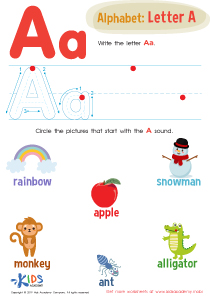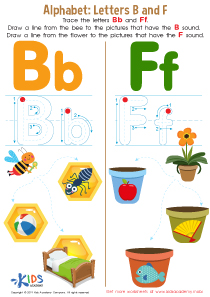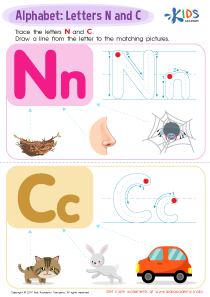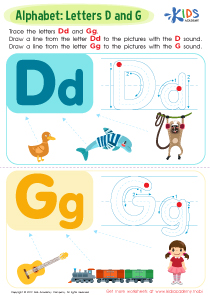Letter recognition Letter U Worksheets for Ages 3-4
5 filtered results
-
From - To
Elevate your child’s learning experience with our engaging Letter U worksheets, specially designed for ages 3-4! These interactive activities promote letter recognition through colorful illustrations and fun exercises, helping young learners familiarize themselves with the letter U. Our worksheets provide a delightful blend of tracing, coloring, and identifying objects starting with U, fostering essential early literacy skills. As children explore the sound and shape of the letter U, they’ll develop confidence in their learning journey. Perfect for home or classroom use, these worksheets make mastering the alphabet enjoyable and accessible. Download our Letter U worksheets today and boost your child’s educational adventure!
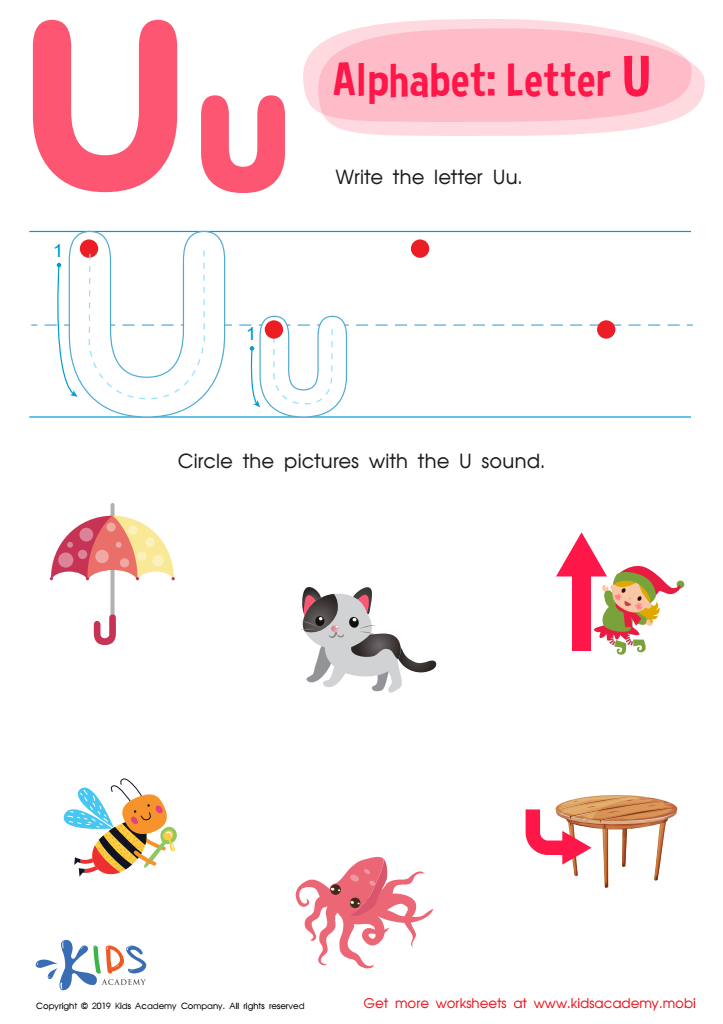

Letter U Tracing Worksheet
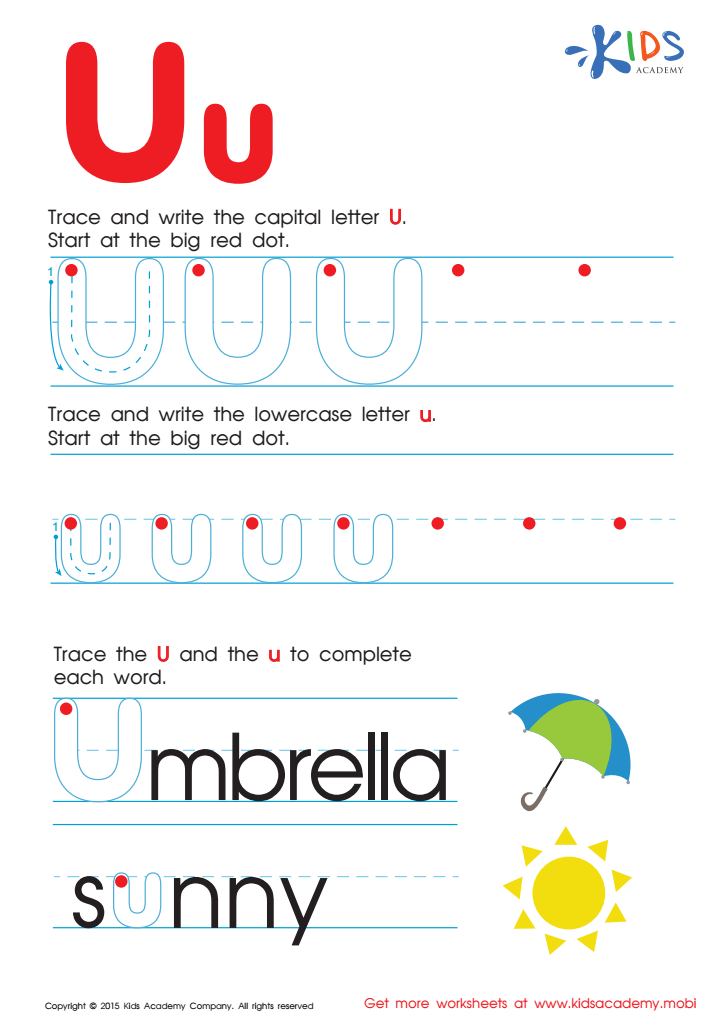

Letter U Tracing Page
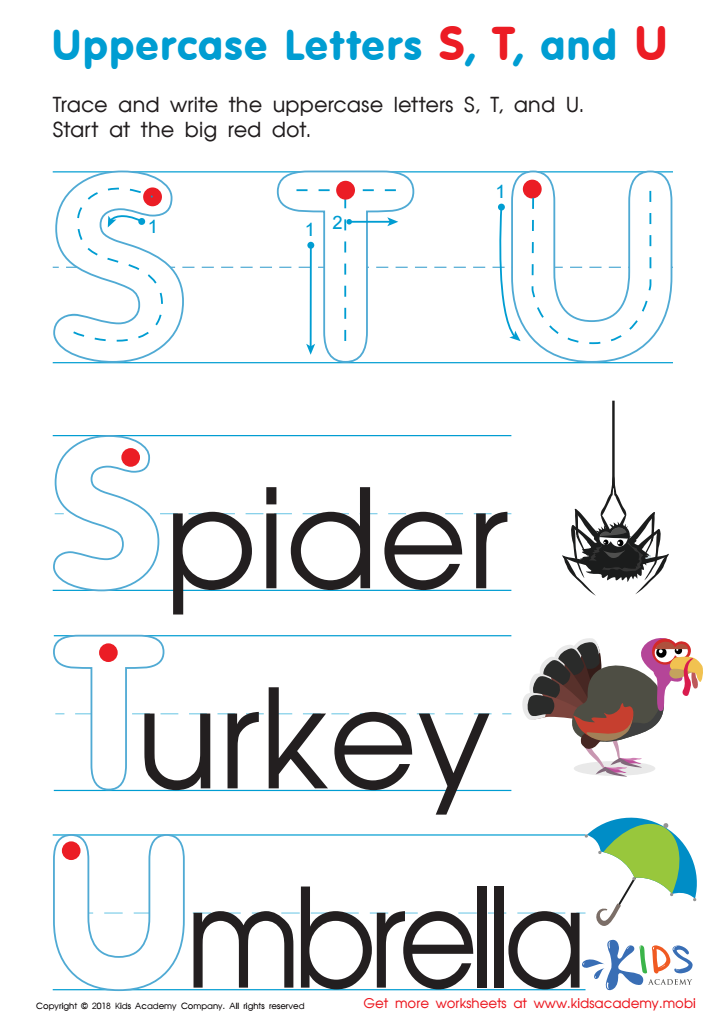

Uppercase Letters S, T, and U Worksheet
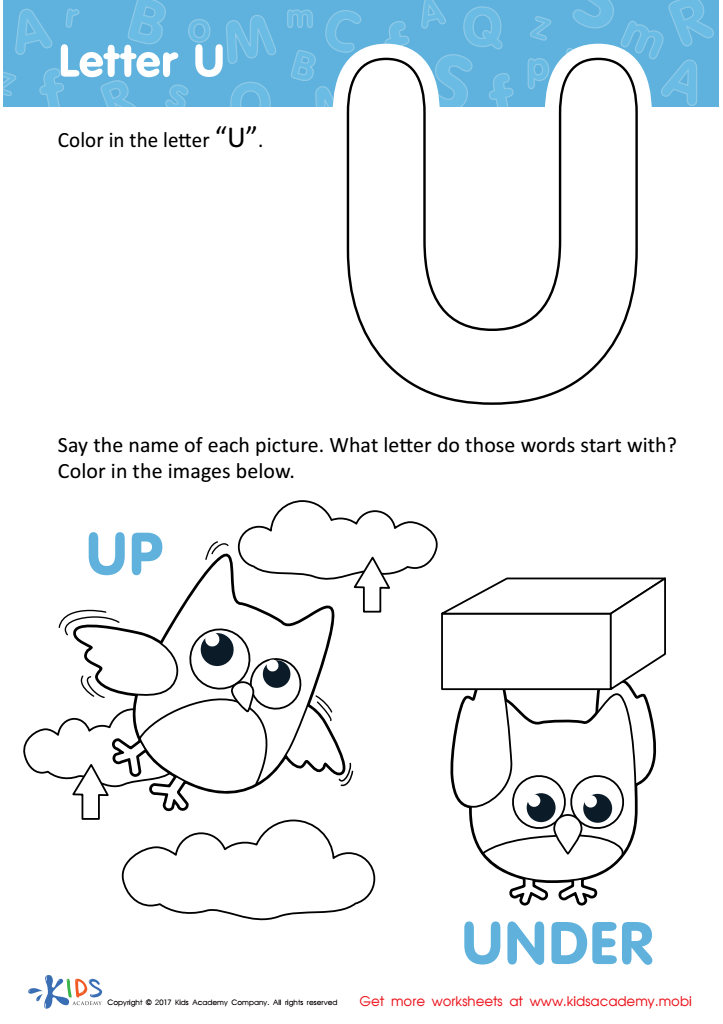

Letter U Coloring Sheet
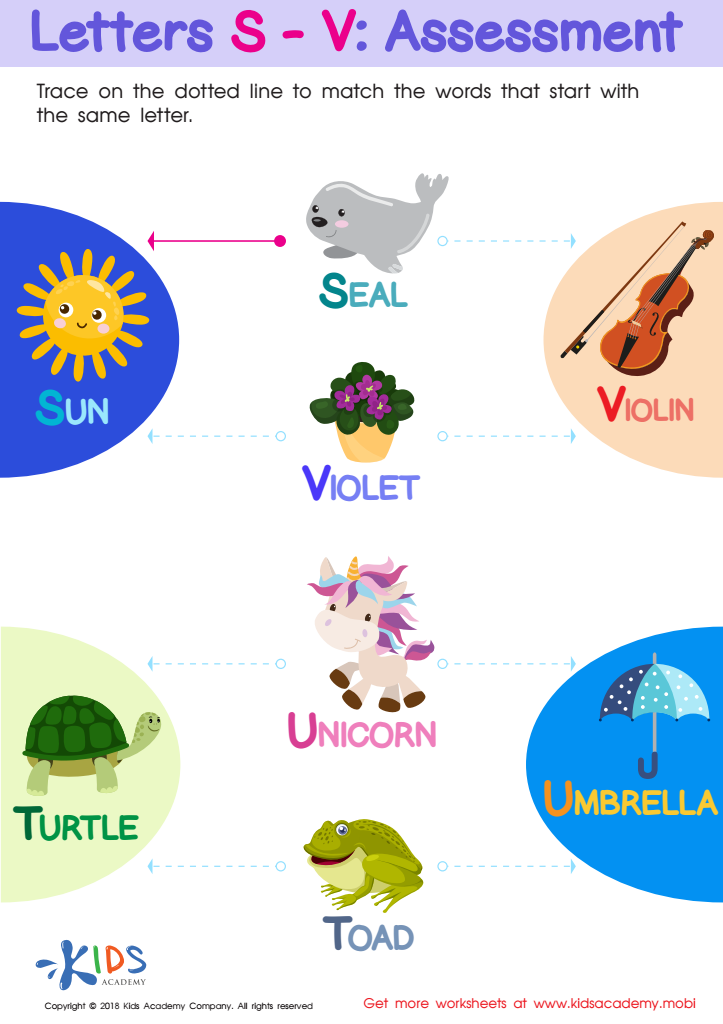

Letters S - V Tracing Worksheet
Letter recognition is a foundational skill in early literacy development, and focusing on the letter U for ages 3-4 is particularly beneficial. At this age, children are starting to explore letters as part of their language acquisition process. Recognizing the letter U—not just its shape but also its sound—helps children begin to connect letters with words, which lays the groundwork for reading and writing.
The letter U is also representative of many familiar words such as "up," "umbrella," and "unicorn." Introducing these words can enhance vocabulary, relate themes from stories or activities, and increase engagement through playful learning. Recognizing U also helps children differentiate it from similar letters like V and N, fostering their visual discrimination skills.
Furthermore, incorporating fun activities such as songs, crafts, or sensory play related to the letter U can make learning enjoyable, consequently nurturing a love for school and learning. When parents and teachers emphasize activities related to letter U, they are not only aiding in letter recognition but are also fostering critical thinking, phonemic awareness, and exposure to language, all crucial for children’s overall cognitive and social development. Engaging in these learning experiences strengthens children’s confidence and prepares them for future educational success.
 Assign to My Students
Assign to My Students





